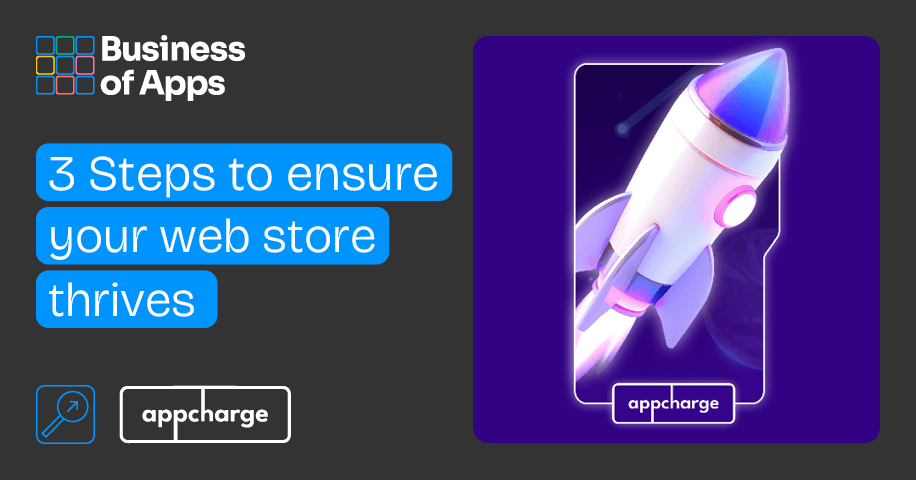65% of this year’s top-grossing mobile games sell directly to their players using a web store, spanning across game categories. From Roblox to PUBG Mobile, from Pokemon GO to Monopoly GO – games across the board operate an external e-commerce store that provides more benefits to studios and consumers by cutting out the middleman (that is, Apple’s 30% app tax), and using the savings to provide better offers to players.
Perhaps you’ve considered building a web store for your game, or perhaps just launched one. It’s essential to note launching a web store is the start of a new monetization strategy and not the finish line. Next, you must ensure it resonates with your players and transforms them into loyal customers.
At Appcharge, we see three challenges that publishers face most often when trying to scale their stores – communicating directly with their players, forming player habits, and maintaining excitement and relevance over time.
There’s a lot of work involved in getting these done right, players simply don’t adopt a new place to make purchases overnight (even loyal players). But it’s definitely doable – many of our clients have been successful in transitioning 15%-25% of their revenue from their in-app store (30% commission) to their web stores (5% take). Here’s a snapshot of Appcharge’s go-to-market playbook that helped them get these results.
First, you must have a way to communicate directly with your players. The most successful titles have checked off a variety of channels that work together to achieve this. Here’s a breakdown of how to use them.
Your first channel is chat and support. We call these your VIP nurture tools, and they can make an extremely positive impact on your GTM strategy. The power lies with your support team – they need to understand how significant of a role they play in helping your players discover the existence of the web store.
Ensure they have been trained to understand your website offers and proactively guide players to your web store. They must also act quickly. The web store should be the first and swiftest answer if asked about offers, and it should be recommended above any general promo code or in-app reward tip.
Your second channel is social media. While this may seem obvious, we receive a lot of questions about how to message your web store on social media and how often you should be doing so. Simply put, social media is your megaphone, and the most successful games of 2024 are using a mix of channels they built before launching their web store, including a dedicated game subreddit, a TikTok and Instagram page, Facebook, X, and Discord.
Your third channel is a curated email list and SMS promotions. We see most developers miss many of the essential touchpoints for building up your email audience. Ensure you’re not passing these opportunities up. Some of the most successful studios have a pop-up that asks players for their emails or phone numbers to receive exclusive loyalty club offers.
Ultimate App Growth Guide 2025
Boost your app’s success with the Ultimate App Growth Guide! 🚀 Expert insights, proven strategies & must-know tips. Download now!
Master app growthYou can also use your social media channels to drive signups to your newsletter. Mix in offers and engaging content once you have a healthy newsletter list – provide exclusive web store deals, behind-the-scenes information, sneak peeks of updates, community polls, event spotlights, and more.
For SMS promotions, target players with personalized offers which will resonate with them – and include a link to take them directly to the web store to redeem the offer. Remember, mix up offers and content, and A/B test your subject lines and SMS message copy.
It’s important to realize that building a web store and placing it on your website is not a proper go-to-market strategy. Instead, use these three channels to work together and help your web store thrive. They are the backbone of a sustainable go-to-market strategy.
So, what now? In future articles, we’ll reveal Appcharge’s secrets to forming player habits and maintaining their long-term interest.












